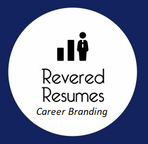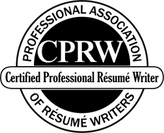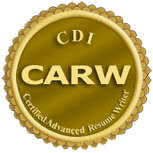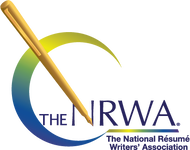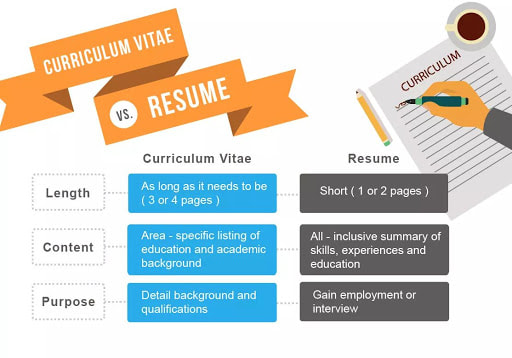 Have you ever seen the term CV listed on a job posting or career website and wondered what it means—and, more importantly—if you need to have one? CV stands for curriculum vitae, and while it’s similar to a resume, it’s not the same. Usually an employer will state explicitly whether a CV or a resume is needed. In general, you would use them in the following situations: CV: A CV is typically required when applying for international, academic, scientific, or research positions. For example, many teaching positions in higher education will require a CV to highlight academic experience. Resume: A resume is the preferred format to apply for most jobs in the U.S. and Canada. Unless the application instructions specifically ask for a CV, you’ll need an updated resume for your job search. Purpose of a CV and Resume CV: Curriculum vitae is Latin for course of life, which aptly describes its purpose in the job market. Think of a CV as your professional and educational journey. It is a detailed chronological story that tells employers about the knowledge, experience, and accomplishments that made you, with a heavy focus on academics. Resume: A resume is a concise document focused primarily on relevant work experience gained from previous jobs. Think of it as your professional marketing flyer. Its main purpose is to grab the attention of a hiring manager or human resource professional so that you are considered for an interview. It should be easily scannable and include details that set you apart from the competition. Content and Order of a CV The content of your CV should appear in reverse-chronological order by section, starting with education and academic achievements followed by professional experience. Group this information into categories with subheads for easy reading. Categories, in order of appearance: Name and contact information Education (degrees held, where they were earned, plus a summary of your academic background – a much more detailed account than what you would include on a resume, including your areas of focus and academic achievements) Teaching experience Research experience Work experience (relevant work-related skills and accomplishments for each position) Accomplishments (with sections for publications, presentations, awards, honors, affiliations, etc.) Content and Order of a Resume The content of your resume should appear in reverse-chronological order, starting with your most recent position followed by past jobs held. Usually education and achievements are last, but if you’re new to the field you might want to list your education first. Keep in mind that you don’t have to include all of your experience, just what’s relevant to the job or career path you seek. Sections your resume should include, in order: Name and contact information Optional short summary paragraph Work experience (where and when you worked and relevant work-related skills and accomplishments for each position) Education (where you studied and degrees earned) Optional sections (e.g. certifications/licenses, military experience, volunteer experience) Length of a CV vs. a Resume CV: Since a CV is a comprehensive chronical of your professional life, it is usually at least two pages long, and often more. There’s no limit to the length – you will want to make the document as long as it needs to be to capture your full education and career experience. Resume: A resume is a one or two-page document, depending on the amount of relevant work experience you have. Customizing a CV or Resume Both CVs and resumes should be accurate representations of your experience and education. You can customize either document based on where you are applying, what you know about the position, and/or relevant keywords and phrases from the job description. To summarize, the main differences between a CV and a resume are: Usage/purpose Contents (topics, level of detail, organization) Length A good way to remember the difference is to think of a CV as your professional and academic biography, whereas your resume is the CliffsNotes summary of your skills and achievements.  Your Administrative Support, Administrative Assistant, Receptionist and Office Manager Resume Administrative Assistant or Office Assistant is a general term that covers many different business and administrative duties. It is used as an umbrella term for a person with a broad set of skills such as using software, maintaining filing systems, writing reports, organizing paperwork, and maintaining a collegial atmosphere. The ideal office assistant resume will exhibit a variety of talents, such as managerial skills, organizational skills and data analysis and processing skills. Doing so will help you land a spot in the growing job market. Here are some ideas for improving your administrative support resume. 1. Emphasize Your Relevant Experience The first thing an experienced Administrative Assistant will want to do is emphasis any previous work experience that can be translated to the position being applied for. Showing relevant and transferable experience is a key resume builder throughout the resume body. All companies are looking for specialized, focused and skilled employees. To capture the attention of HR, this resume begins immediately with a Professional Summary highlighting relevant professional and educational experiences. The Professional Summary starts off with a statement of experience such as: Office Assistant with 10+ years of experience handling confidential tasks and making routine office tasks as efficient as possible. It also mentions keywords that indicate managerial material, company ROI potential and upward mobile talent: Proven managerial experience and cost-cutting abilities, while maintaining high standards and achieving company goals. 2. Quantify Your Resume – Add Numbers Additionally, this resume is packed full of quantified data, which proves the applicant’s achievements and worth to potential employers. Office assistants will want to numerically quantify points that lend to their reliability, efficiency, and management skills. This particular resume does this in both professional experiences. To get the job, you need an attractive and persuasive resume. Our experienced certified professional resume writers can take care of the hard resume writing, and format everything into HR-recommended resume styles. You quantify your professional experience by including achievements in terms of dollar amounts. It is also a great way to catch the reader’s eye. For example: Saved $24,000 in labor costs annually by implementing a streamlined automated database. Another great way to quantify numerically is in terms of percentages, for example: Consistently attained 95%+ customer satisfaction by ensuring the provision of exemplary service. Additionally, include how many people you managed in numbers as well to give scope to the responsibility. For example: Supervised and trained a staff of 3 regular clerks and 4 interns. Adding quantification throughout an office assistant resume keeps the reader’s eye moving from experience to experience. Most importantly, it helps the hiring manager quickly grasp the scope of the applicant’s experiences. The second experience continues quantifying in an excellent fashion, utilizing 3 more ways in which achievements can be proven. Adding a “+” to your estimated totals is a great way to show achievements, for example: Supported all payroll activities for 60+ employees. Include daily goals such as number of customers dealt with or calls taken such as is included in this example: Answered incoming calls (avg. 40/day). Remember, no resume will get you a job if you turn in a document that's full of typos, dreadful design or grammatical errors. Accuracy is a key job skill for administrative assistants, and if you can't get your resume right, you're sending an automatic red flag to employers. Be honest, be succinct and avoid mistakes — and good luck. What is needed for a compelling sales & marketing resume?  As a sales professional, you know that first impressions are key. When you are looking for a new sales position at a top firm, your resume is often the first glance prospective employers see of you. It needs to be persuasive, professional, and on point. We are here to help make this happen! The following tips will help you create an outstanding sales resume, one sure to impress potential employers. Craft Your Pitch As with any introduction, your sales pitch will be the first thing you want to present. This is a short, sharp, punchy summary of the qualifications and key skills/core competencies you have to offer. Treat your top-third of your resume as your personal sales pitch. If it’s weak, not only will hiring managers doubt your abilities, but they will also stop reading your resume altogether. Provide something outstanding and you’ll be on your way to making the sale. To ensure your summary is as persuasive as possible, treat it like a sales pitch to a potential client, highlighting features and benefits. The features are your skills, knowledge, and abilities, and the benefits are the results and achievements you can accomplish if you get hired. You will also want to keep this section of your resume tailored to the job description. The skills you reference should incorporate the keywords from the job description and be related to the job posting to ensure your resume lands at or near the top of search results on Application Tracking Systems (ATS) and search engines. Highlight Essential Sales Skills The benefits of referencing essential sales skills in your resume are twofold. As mentioned, keywords from the job description will optimize your resume to pass ATS’s. But at the next stage, your resume will be read by recruiters and potentially hiring managers. By referencing skills in the recruiters’ own language, you make it obvious that you’re a great fit, helping you progress to interview stage. Here are some common essential skills and abilities you might include in your sales resume: ✦ Product Knowledge ✦ Client Acquisition & Retention ✦ Goal setting and forecasting ✦ Deal Closure ✦ Competitive Intelligence ✦ Market Penetration ✦ Territory Management Showcase Your Results While it’s easy to say you have certain skills, such as the ability to close sales, this won’t necessarily convince the hiring manager that your skills are genuine. To remove all doubt, support your skills with examples, achievements, and, where possible, actual numbers. As a sales professional, you need to focus on your results, targets, and other industry metrics. For example, you might reference generated revenue, unit sales, awards won or targets achieved. Try to be as specific as possible, and quantify your results with stats and facts, as recruiters will digest them better than words because they’re so to-the-point. Here are some examples of ways to phrase your skills and achievements on your resume: ✦ Averaged more than $3 million in annual sales. ✦ Met or exceeded all quotas, resulting in 80% revenue increase over 12 months Showcasing your results in this way will prove to hiring managers that you’re a talented salesperson worth short-listing for an interview. Perfect, Polish & Proofread The last step is to perfect and polish your resume to ensure it’s flawless. In any sales role, the requirement for effective, professional communication is paramount. Your resume must reflect these characteristics. Take some time to carefully proofread your resume. You can get quite far with Word’s own spell-checker and tools like Grammarly. However, a more human approach is likely to catch all your typos, grammatical errors, and awkward phrasings. For example, writing “our” instead of “out” might be wrong in context, but to a spell-checker it’s correct. Reading your resume aloud is a great way to quickly identify errors. Also, make sure your resume is proofread by at least two other people to catch every mistake. In addition to reading well, your resume must also look the part to ensure clean, clear communication. Start by using an easy-to-read font such as Arial or Calibri and signal each section of your resume with a bold heading. Keep your formatting consistent throughout to maintain a professional appearance. Ultimately, your sales resume is no different than pitching to prospective leads, so it should come as second nature. If you keep your resume up to date with the latest metrics, punchy and persuasive content, and an immaculate finish, there’s no reason it won’t impress your prospective employers. |
Categories
All
Archives
December 2023
|
HOURSM-F: 9am - 5pm
|
|
